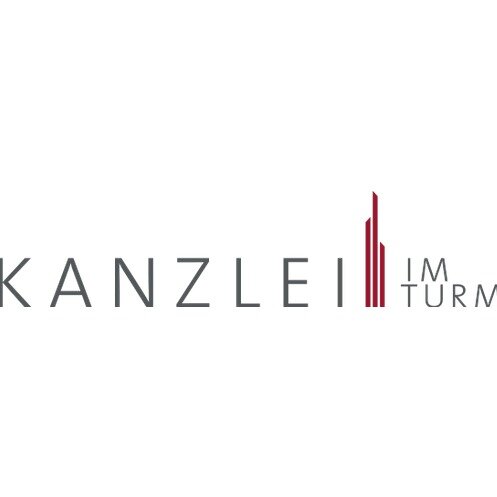Best Private Client Lawyers in Switzerland
Share your needs with us, get contacted by law firms.
Free. Takes 2 min.
Or refine your search by selecting a city:
List of the best lawyers in Switzerland
About Private Client Law in Switzerland
Private Client law in Switzerland refers to the legal services provided to individuals and families, often with significant personal assets or complex financial situations. This field encompasses areas like estate planning, inheritance law, tax planning, asset protection, trusts, succession planning, matrimonial property issues and charitable giving. Switzerland is known for its political stability, well-established legal framework and robust privacy laws, making it an attractive jurisdiction for wealth management and private client matters. Professionals in this area assist clients in organizing, protecting, and transferring their assets according to Swiss and international law.
Why You May Need a Lawyer
People seek legal help from Private Client lawyers in Switzerland for a variety of reasons, including:
- Drafting or updating a will or testament
- Planning business succession in a family enterprise
- Managing cross-border assets or tax situations
- Setting up trusts and foundations for asset protection or charitable purposes
- Resolving inheritance disputes among heirs or beneficiaries
- Complying with Swiss and international tax reporting requirements
- Navigating marital property regimes in case of marriage, divorce, or death
- Protecting vulnerable family members, such as minors or persons with disabilities
These situations can involve complicated local and international laws, making professional advice essential to avoid costly mistakes and ensure your intentions are legally protected.
Local Laws Overview
Several key aspects of Swiss law are especially relevant for Private Client matters:
- Inheritance Law: Swiss inheritance law is largely governed by the Swiss Civil Code. Forced heirship rules protect close relatives, guaranteeing them a legal share of the deceased’s estate that cannot be overridden by a will. However, there is also a portion known as the "freely disposable share" that the testator can allocate as they wish.
- Taxation: Tax rules vary between Switzerland’s 26 cantons, especially regarding inheritance and gift taxes. While some cantons have abolished these taxes for direct descendants, others still impose them. Swiss residents are taxed on their worldwide assets, while non-residents are generally taxed only on Swiss-based assets.
- Marital Property Law: The marital property regime chosen by spouses - such as community of property or separation of property - affects asset division in the event of divorce or death.
- Trusts and Foundations: While Switzerland does not recognize trusts under domestic law, it respects foreign trusts due to its ratification of the Hague Trust Convention. Foundations are commonly used for estate planning and charitable goals.
- Cross-Border Issues: Many clients are affected by cross-border considerations such as international succession, tax reporting, and recognition of foreign wills.
Swiss legal procedures and local requirements can be complex and vary by canton, emphasizing the importance of localized legal advice.
Frequently Asked Questions
What is forced heirship in Switzerland?
Swiss law requires a portion of an estate to go to certain close relatives, such as children and spouses. This limits the testator’s freedom to distribute their assets entirely according to their wishes but leaves a disposable share for other bequests.
Do I need a Swiss will if I own assets in Switzerland?
Having a Swiss will is often advisable to ensure your wishes regarding Swiss-based assets are respected and to facilitate smoother local probate procedures.
Are trusts recognized in Switzerland?
Switzerland recognizes foreign trusts, but does not have domestic trust law. Swiss courts will apply the law of the trust’s origin, as per international treaties.
What taxes apply to inheritances in Switzerland?
Inheritance tax varies by canton and relationship to the deceased. Direct descendants often pay little or no tax, while distant relatives or unrelated beneficiaries may face higher rates.
How does Swiss law handle cross-border estates?
Swiss authorities coordinate with foreign legal systems regarding cross-border estates. Proper planning is required to avoid conflicts between Swiss and international rules.
Can I leave all my assets to charity in Switzerland?
You can leave part of your estate to charity, but forced heirship rules may limit how much you can bequeath, depending on your family situation.
What happens if I die without a will in Switzerland?
Swiss intestacy law will determine heirs and their shares according to familial relationships, which may not reflect your personal intentions.
Are marital agreements enforceable in Switzerland?
Marital agreements specifying property regimes are generally valid if properly executed, but must conform to Swiss law and procedural requirements.
What role does a notary play in Swiss Private Client matters?
Notaries in Switzerland often authenticate wills, property transactions, and some marital agreements, with requirements differing by canton.
Is Swiss banking secrecy still in force?
Swiss banking secrecy has been reduced due to international cooperation on financial transparency. However, privacy remains a fundamental principle protected by law, especially for domestic matters.
Additional Resources
For further information and guidance on Private Client matters in Switzerland, you can consult:
- Swiss Bar Association - national body for qualified lawyers
- Federal Office of Justice - provides information on civil law topics including inheritance and family law
- Cantonal notaries and legal registries - handle local procedural requirements
- Swiss Association of Notaries
- Swiss Bankers Association - guidance on managing financial assets
- Swiss Tax Conference - for cantonal tax rulings and interpretation
- Charity organizations and foundations - if considering charitable giving
Next Steps
If you believe you need legal assistance with a Private Client matter in Switzerland, consider the following steps:
- Gather essential documents such as wills, property deeds, tax records, and any marital agreements.
- Write down your key questions and objectives for your assets and family situation.
- Identify qualified lawyers or notaries who specialize in Private Client law, preferably with experience in your canton and any relevant international matters.
- Schedule an initial consultation to discuss your situation, verify their expertise, and understand the potential costs and timelines.
- Regularly review your estate planning and asset management to ensure your arrangements remain up to date with your wishes and any changes in the law.
Proper legal advice in Switzerland can prevent disputes, minimize tax liabilities, and ensure your assets are managed in accordance with your wishes. Reaching out to a professional early in the process will set a solid foundation for the protection and succession of your estate.
Lawzana helps you find the best lawyers and law firms in Switzerland through a curated and pre-screened list of qualified legal professionals. Our platform offers rankings and detailed profiles of attorneys and law firms, allowing you to compare based on practice areas, including Private Client, experience, and client feedback.
Each profile includes a description of the firm's areas of practice, client reviews, team members and partners, year of establishment, spoken languages, office locations, contact information, social media presence, and any published articles or resources. Most firms on our platform speak English and are experienced in both local and international legal matters.
Get a quote from top-rated law firms in Switzerland — quickly, securely, and without unnecessary hassle.
Disclaimer:
The information provided on this page is for general informational purposes only and does not constitute legal advice. While we strive to ensure the accuracy and relevance of the content, legal information may change over time, and interpretations of the law can vary. You should always consult with a qualified legal professional for advice specific to your situation.
We disclaim all liability for actions taken or not taken based on the content of this page. If you believe any information is incorrect or outdated, please contact us, and we will review and update it where appropriate.
Browse private client law firms by service in Switzerland
Switzerland Attorneys in related practice areas.
Browse private client law firms by city in Switzerland
Refine your search by selecting a city.
















